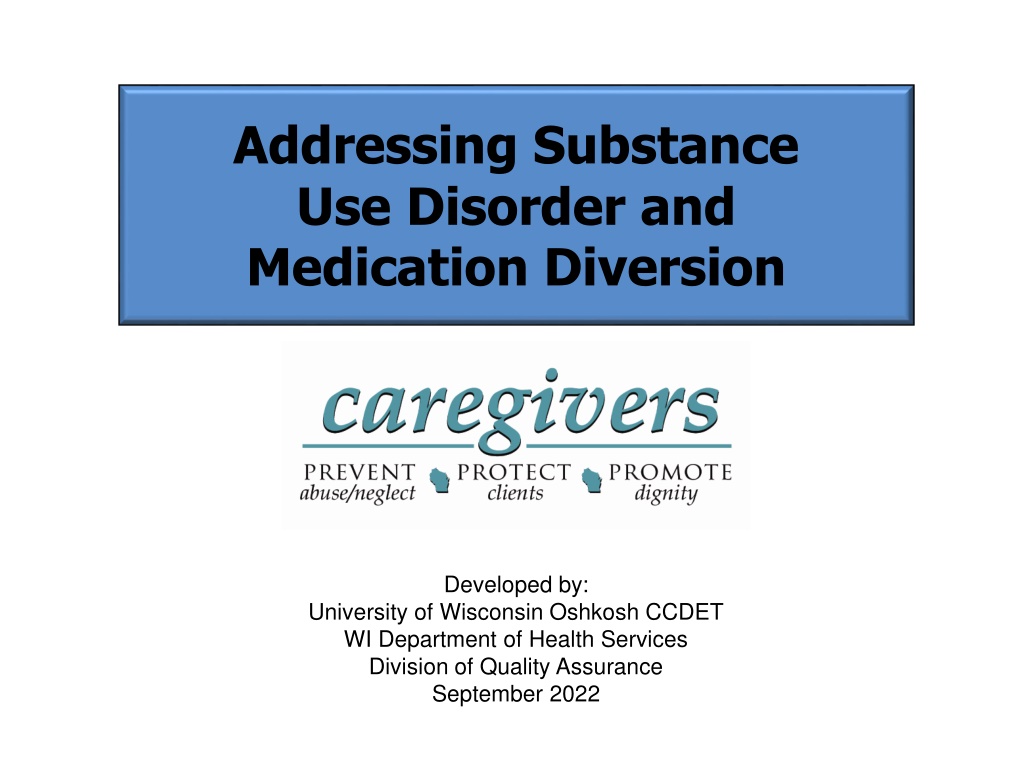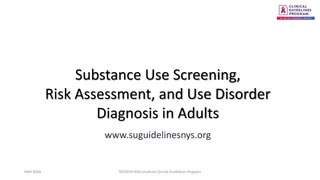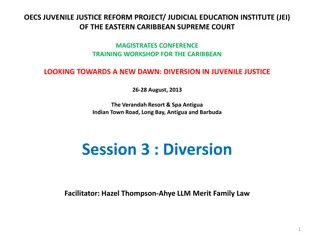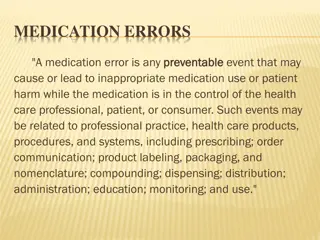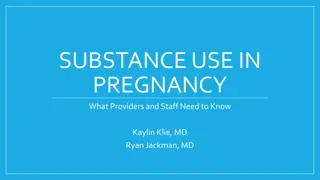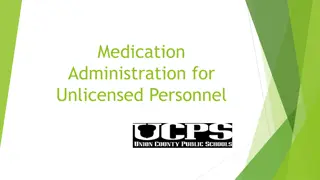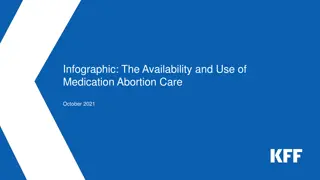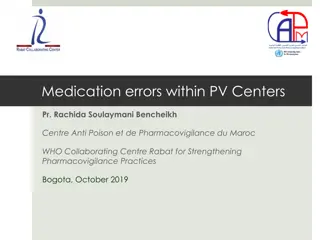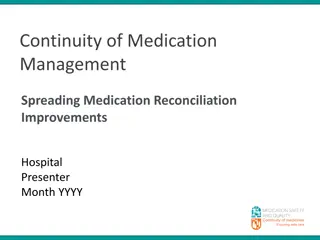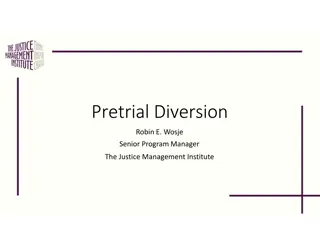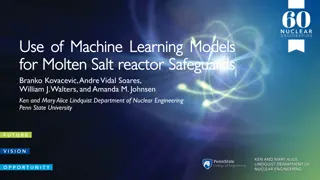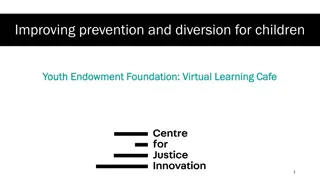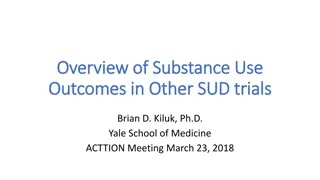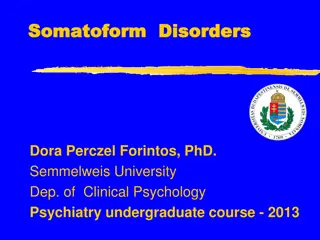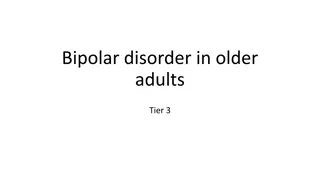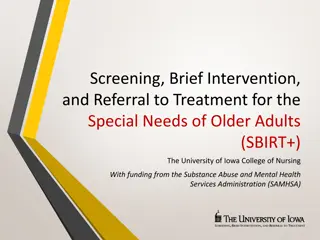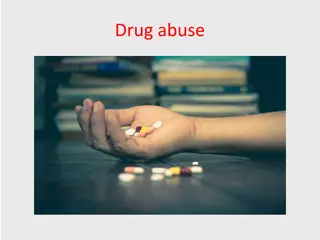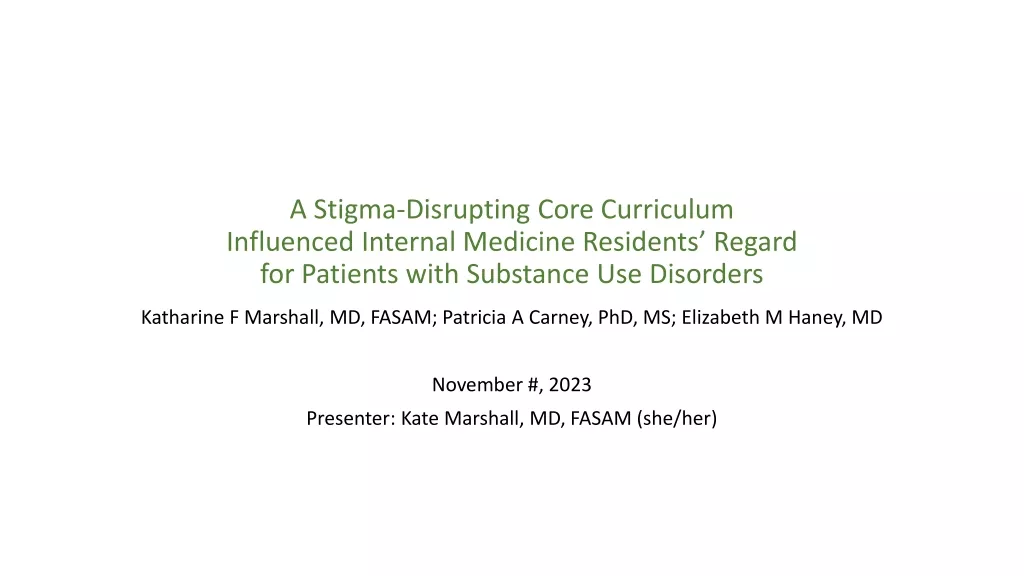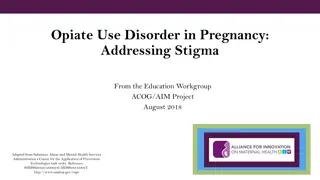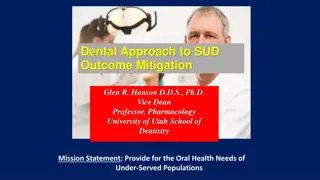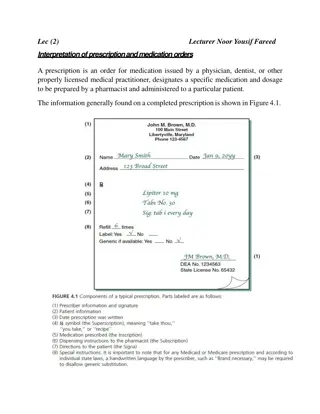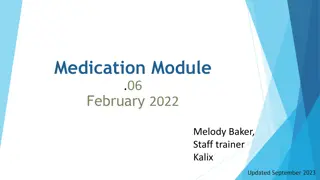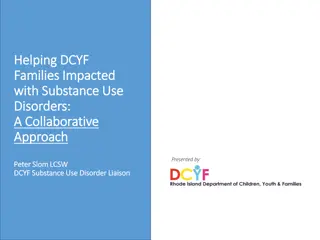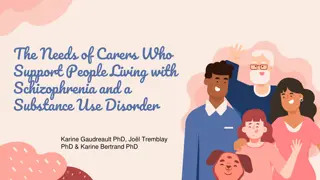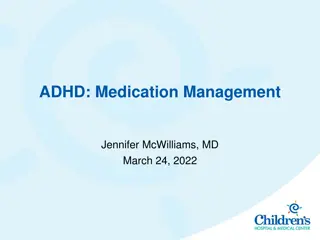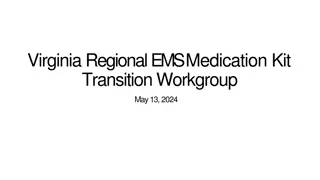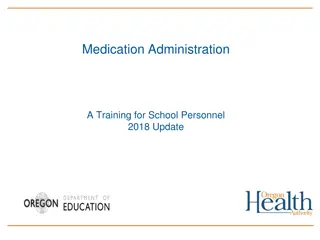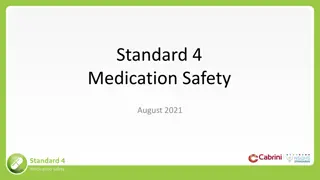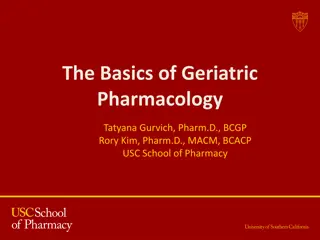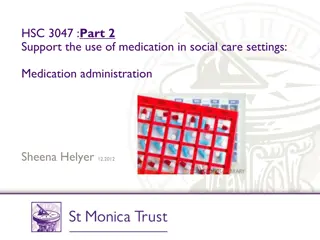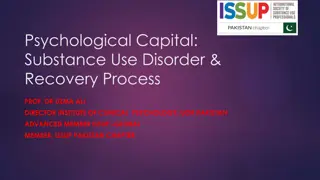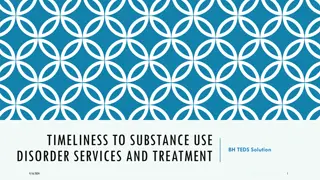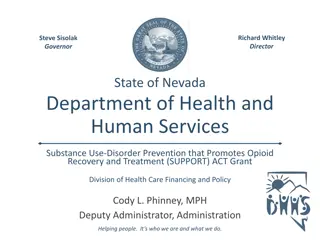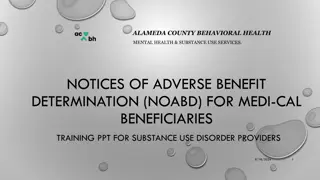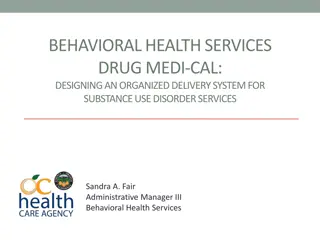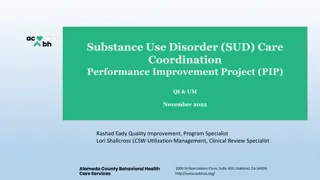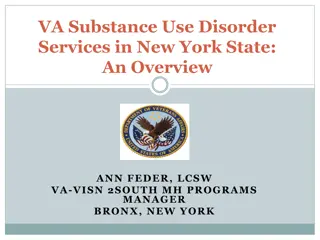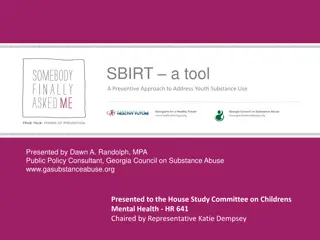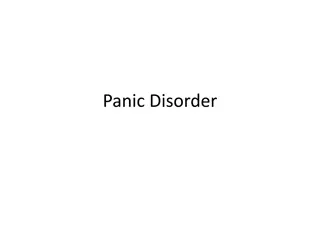Understanding Substance Use Disorder and Medication Diversion
Substance use disorder (SUD) can affect anyone regardless of age, occupation, or background. This training module covers the identification of SUD, best practices for prevention, and the impact of opioid use disorder. It emphasizes the importance of recognizing medication diversion and provides insight into why healthcare professionals may be vulnerable to drug misuse.
- Substance Use Disorder
- Medication Diversion
- Training Module
- Opioid Epidemic
- Healthcare Professionals
Download Presentation

Please find below an Image/Link to download the presentation.
The content on the website is provided AS IS for your information and personal use only. It may not be sold, licensed, or shared on other websites without obtaining consent from the author. Download presentation by click this link. If you encounter any issues during the download, it is possible that the publisher has removed the file from their server.
E N D
Presentation Transcript
Addressing Substance Use Disorder and Medication Diversion Developed by: University of Wisconsin Oshkosh CCDET WI Department of Health Services Division of Quality Assurance September 2022
Addressing Substance Use Disorder & Medication Diversion Overview Direct care staff first to notice slight changes in: Client s medication Colleague s behavior Healthcare providers must have written policies & procedures for medication management, storage & administration
Learning Points Increase Awareness of Substance Use Disorder & Medication Diversion Understand Controlled Substances Learn Best Practices for Preventing & Reporting Diversion Identify Possible Substance Use Disorder & Treatment Resources
Introduction to Substance Use Disorder Substance use disorder (SUD) can affect anyone regardless of age, occupation, economic circumstances, ethnic background, gender
Misuse, Dependency, Addiction Misuse using medication other than how prescribed Dependency misuse can lead to physical or psychological dependence Addiction substance use disorder PG 6
Opioid use disorder (OUD) is a chronic disease of the brain Drug overdoses are the leading injury- related cause of death 75% of overdose deaths in 2020 involved opioids Impact of Opioid Epidemic
Introduction to Medication Diversion For the purposes of this training, the term medication diversion refers to theft of another person s prescription medication
Drug Diversion in Healthcare Settings It may seem that healthcare professionals would be the last group to misuse prescription drugs. Unfortunately, that is not the case. Think about the reasons why healthcare staff may be even more susceptible to drug diversion than others?
Controlled Substances Schedule I Schedule II Schedule III Schedule IV Schedule V
Commonly Misused Prescription Medications Central Nervous System (CNS) Depressants Opioids Stimulants How many of these medications have been prescribed to your residents? 10
Preventing Medication Diversion Observing the Rules and Regulations Knowing Your Responsibilities Increasing Awareness: Recognizing Red Flags
Increasing Awareness WHAT EMPLOYEES CAN DO WHAT EMPLOYERS CAN DO
Developing & Applying Best Practices What can managers & supervisors do to prevent diversion? ~ Example 1 ~ ~ Example 2 ~ ~ Example 3 ~
Reporting Medication Diversion Wisconsin s Caregiver Law Drug diversion meets the definition of misappropriation Report to DQA Criminal Charges & Penalties May be a crime Report to local law enforcement
Identifying & Treating SUD Early recognition, reporting and intervention are fundamental for keeping clients safe and helping colleagues recover
Substance Use Disorder Awareness & Education Misunderstood disease Stereotypes Substance Use Disorder in Nursing video Early Identification Red flags Report concerns Safe Intervention
Review Learning Points Increase Awareness of Substance Use Disorder & Medication Diversion Understand Controlled Substances Learn Best Practices for Preventing & Reporting Diversion Identify Possible Substance Use Disorder & Treatment Resources
SUD Resources Addiction 101 Addiction Policy Forum https://addictionschool.addictionpolicy.org/p/addiction- 101 Start Healing Now https://starthealingnow.org/ Substance Abuse and Mental Health Services Administration (SAMHSA) https://www.samhsa.gov/ Dose of Reality: Opioids in Wisconsin Wisconsin Department of Health Services https://www.dhs.wisconsin.gov/opioids/index.htm Substance Use Disorder National Council of State Boards of Nursing https://www.ncsbn.org/substance-use-disorder.htm Facing Addiction in America The Surgeon General s Spotlight on Opioids https://addiction.surgeongeneral.gov/ Substance Use Disorders Wisconsin Department of Health Services https://www.dhs.wisconsin.gov/aoda/index.htm Facts about Fentanyl Drug Enforcement Administration https://www.dea.gov/resources/facts-about-fentanyl Treatment, Recovery & Prevention of Substance Use Disorder Herren Project https://herrenproject.org/ Fentanyl Poisoning & Counterfeit Pills Partnership to End Addiction https://drugfree.org/fentanyl-poisoning/ Understanding Drug Use and Addiction National Institute on Drug Abuse https://nida.nih.gov/publications/drugfacts/understandi ng-drug-use-addiction Opioids Centers for Disease Control and Prevention https://www.cdc.gov/opioids/index.html Resilient Wisconsin Wisconsin Department of Health Services https://www.dhs.wisconsin.gov/resilient/index.htm Wisconsin Voices for Recovery https://wisconsinvoicesforrecovery.org/ Wisconsin Workplaces: Recovery Ready Wisconsin Department of Workforce Development https://dwd.wisconsin.gov/recovery-ready/ Residential Substance Use Disorder Treatment Benefit Resources Wisconsin Department of Health Services https://www.forwardhealth.wi.gov/WIPortal/content/ht ml/news/rsud_resources.html.spage
developed by The Wisconsin Caregiver Project University of Wisconsin Oshkosh Center for Community Development, Engagement and Training (CCDET) https://uwosh.edu/ccdet/caregiver-home/
